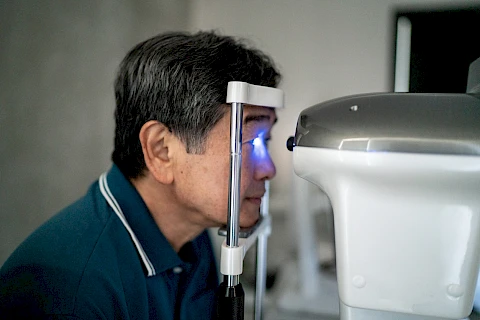
As caregivers and family members, we want the best for our senior loved ones. However, eye care is one significant aspect of their health that often gets overlooked. Glaucoma is a serious eye condition that can lead to vision loss if not detected early. Recognizing glaucoma symptoms in seniors is pivotal for maintaining their overall well-being.
What Is Glaucoma?
Glaucoma refers to an assortment of eye conditions that destroy the optic nerve due to abnormally high pressure in the eye. Different types of glaucoma exist. Open-angle glaucoma has a slow progression, making it hard to notice symptoms. Angle-closure glaucoma may appear seemingly out of nowhere and is considered a medical emergency. Seniors are particularly at risk, as the likelihood of developing glaucoma increases with age.
Common Symptoms of Glaucoma
Recognizing the signs of glaucoma can be tricky due to the slow progression of certain types. Gradual loss of peripheral vision is a common symptom. It can be hard to notice initially but becomes more evident as the disease advances. Seniors might also experience eye pain or pressure, ranging from mild discomfort to severe pain, particularly in cases of angle-closure glaucoma.
Another sign is seeing halos or rainbow colors around lights, which results from pressure affecting the optic nerve. Persistent redness in one or both eyes can indicate glaucoma or other eye issues. In acute cases, seniors may experience nausea and vomiting along with severe eye pain.
Importance of Regular Eye Exams
Regular eye exams are pivotal in detecting glaucoma early. Seniors should have an eye exam every 1-2 years, depending on their risk factors and overall health. During an eye exam, the eye doctor will measure eye pressure, inspect the drainage angle, evaluate the optic nerve, and test for visual field loss. Early detection through these exams can prevent severe vision loss, allowing for timely treatment and management.
Managing and Treating Glaucoma
Several treatment options are available for seniors with glaucoma. Doctors often prescribe eye drops to reduce eye pressure. In some cases, surgery may become necessary. Procedures such as laser therapy or the insertion of drainage tubes can help lower eye pressure effectively.
Lifestyle adjustments can also play a significant role in managing symptoms. A healthy diet rich in nutrients, such as Omega-3 fatty acids, can support overall eye health. Encourage seniors to exercise regularly, manage their blood pressure, and avoid activities that strain their eyes. Consult a healthcare provider before introducing a senior loved one to a new exercise routine.
Resources for Caregivers
Supporting a senior with glaucoma involves more than just understanding the symptoms and treatments. Local organizations can often provide educational materials and assist in connecting with eye care professionals. Websites dedicated to eye health, such as the American Glaucoma Society, provide valuable information for caregivers. Consider engaging professional caregiving services like Senior Helpers. Trained caregivers can help manage the daily needs of seniors with glaucoma, ensuring they receive the best care possible.
Experience Top-Notch Senior Care With Senior Helpers
Recognizing glaucoma symptoms in seniors is crucial for preserving vision and preventing further complications. Early diagnosis can ensure timely intervention to manage the condition, enhancing your senior loved one's quality of life.
If you’re in River Grove, Stone Park, Schiller Park, Chicago, and Harwood Heights and are considering additional support caring for a senior loved one, we can help. Senior Helpers Elmwood Park offers professional senior care solutions tailored to your senior loved one’s unique needs. Contact us to learn more about our services!